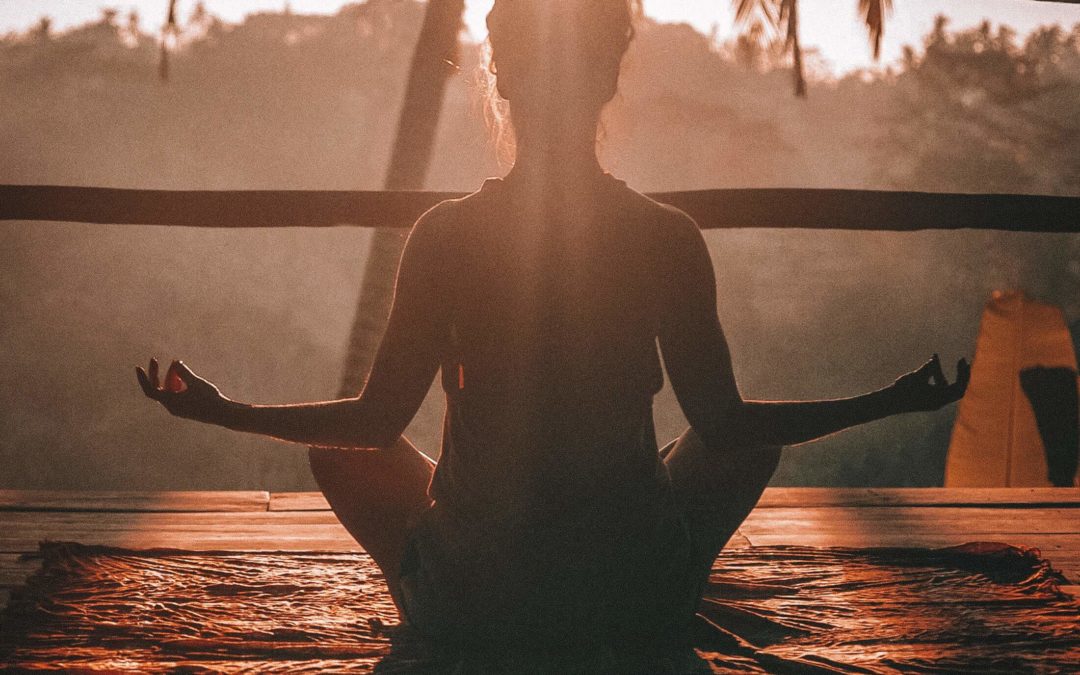
Sleep – What Ancient Wisdom Tells Us
Sleep, surprisingly, is no simple matter. For many of us, no matter how much we crave and value a good night’s sleep it doesn’t come that easily. We either get too little, too much, or poor quality and disturbed sleep. According to Charaka all of the above lead to debility, weakness and poor cognition while also draining away our happiness and longevity. Clearly something important is happening when we shut our eyes at the end of the day.
In Ayurveda sleep is considered the most powerful anti-inflammatory. It provides the crucial time for your body to rest so that it can renew and rejuvenate damaged cells behind the scenes, detoxify major organ systems and consolidate our memory and mental health. Not to mention the spiritual benefits of sleep! Those delightful hours of shuteye allow for a time of respite from the mundane world. A time when we can ‘escape’ to the source; Brahman, away from body, mind and sensory activity and into peaceful nothingness. It’s no wonder sleep is sometimes referred to as the deepest form of meditation.
How to Sleep for Your Dosha
Ayurvedic knowledge is always first and foremost based on the individual, and tailoring diet and lifestyle to each person’s unique doshic balance. It is generally recommended to follow this guide when planning how many hours of sleep you’d like to get each night:
Vata – 8-9 hours
Pitta – 7-8 hours
Kapha – 6-7 hours (though they might crave more!)
But that’s not all.
WHEN you sleep is as important as HOW MUCH you sleep.
Following the daily doshic cycles :
Vata Time: 2AM – 6AM and 2PM – 6PM
Pitta Time: 10AM – 2PM and 10PM – 2AM
Kapha Time: 6AM – 10AM and 6PM – 10PM
Since Kapha is the most sedate, heavy and slow of the doshas it provides the best “sleepy time” kind of energy for us to get a good night’s sleep. It is therefore recommended to go to bed within the evening Kapha time window, between 6pm and 10pm.
Once the Vata time window begins begin 2AM and 6AM, our sleep gets lighter and more easily disturbed because Vata is the most light, subtle and easily stimulated of the doshas. It provides a good waking energy, rather than sleeping energy. It is ideal to sleep during Kapha time because that ensures that you get enough hours of good quality sleep before the lighter sleep phase of Data kicks in. And it is therefore best to plan to wake up during Vata time.
For any of you night owls raising an eyebrow at these early nights, we’d like to talk a little bit about Pitta time. Pitta, being the most driven and ambitious of all the doshas is not particularly helpful when it comes to sleep because it provides us with the energy to stay up and get stuff done. In fact it’s common to experience feeling sleepy at around 9-10PM and then realising that you get a second wave of energy once you push past 10PM, that’s Pitta taking action. So if you’d like to cultivate an earlier evening routine rest assured that by getting in the habit of sleeping before 10PM you avoid setting off that Pitta time and will have an easier time falling asleep.
But if that’s not reassuring enough, Ayurveda also offers us some incredibly helpful foods and herbs to help support sleep…
Sleepy Herbs
Here are three of our favourites:
Valerian
This herb is famously known for its naturally sedating qualities. It is quite powerful so is only recommended if you find it very difficult getting sleep and find yourself laying awake in bed for hours. It’s best taken 30 minutes or so before wanting to sleep. Bear in mind that being a sedative it is not recommended to take during the day as it will make you drowsy and definitely do not take if you’re planning to drive, operate machinery or carry out any tasks that require your full attention.
Ashwagandha
Ashwagandha is not sedating, so can be taken at any point during the day. It doesn’t work by making you sleepy but rather by calming the nervous system so ensure you find it easy to relax and fall asleep. It is best recommended for stress and anxiety so it helps with sleep quality by helping you cope with your stresses so that you can end the day more peacefully. This herb is mostly aimed at sleep quality, so if you find that you manage to sleep a full night but spending it tossing and turning and feeling like you’re not sleeping deeply, it is best recommended for you.
Nutmeg
This spice is surprisingly powerful when it comes to sleep. Similarly to ashwagandha it also helps deal with anxiety but onto of that it is also sedating and so combines the best of both of the above herbs. It does however require quite high doses to be effective and is best taken 30 minutes before bedtime. As always with any sedative, do not take while driving or carrying out tasks that require your full attention.
It’s also invaluably helpful to reduce your intake of stimulants and sugar throughout the day. We hope you find these tips helpful, and want to encourage you on your path to better sleep. We believe that sleep is one of the most crucial dimensions to our health and quality of life. And in an age when our time, energy and attention is so frequently demanded for work, entertainment and advertising we feel that striving for good sleep is an act of rebellion. It is often tempting to skimp on sleep to get more things done, so prioritising your sleep is one of the most self-loving acts we can perform today.
Slow down. Eat well. Sleep well.
If you’re interested in the countless ways Ayurveda could add to your life check out our FREE 10 day Foundation Course or have a look at our Full Course Catalogue.
More From Our Ayurvedic Learning Center

How to Balance Dual Pitta-Vata Dosha with Yoga
A Pitta-Vata yoga balancing practiceAuthor: Heidi HarrabiThere are three doshas - Vata (air and ether), Kapha (water and earth), and Pitta (fire and water). Some people have one dominant dosha, some have two, and some have three in balance. Balancing your doshas is...

The Elements of Ayurveda: Your Roadmap to Balance
Author: Jacky RaeAyurveda describes the special relationship we have with the universe. It provides the roadmap that can lead us to perfect balance and harmony. All we have to do is follow the signposts it sets out for us. These signposts come in the form of the five...
Mindfulness
Breathe and Smile to Everything you Encounter The Buddhist monk, Thich Nhat Hanh, led a retreat in Montreal, Canada. He noticed that every time a car stopped in front of him, he saw the sentence on the license plate “Je me souviens” (I remember). He did not know what...
